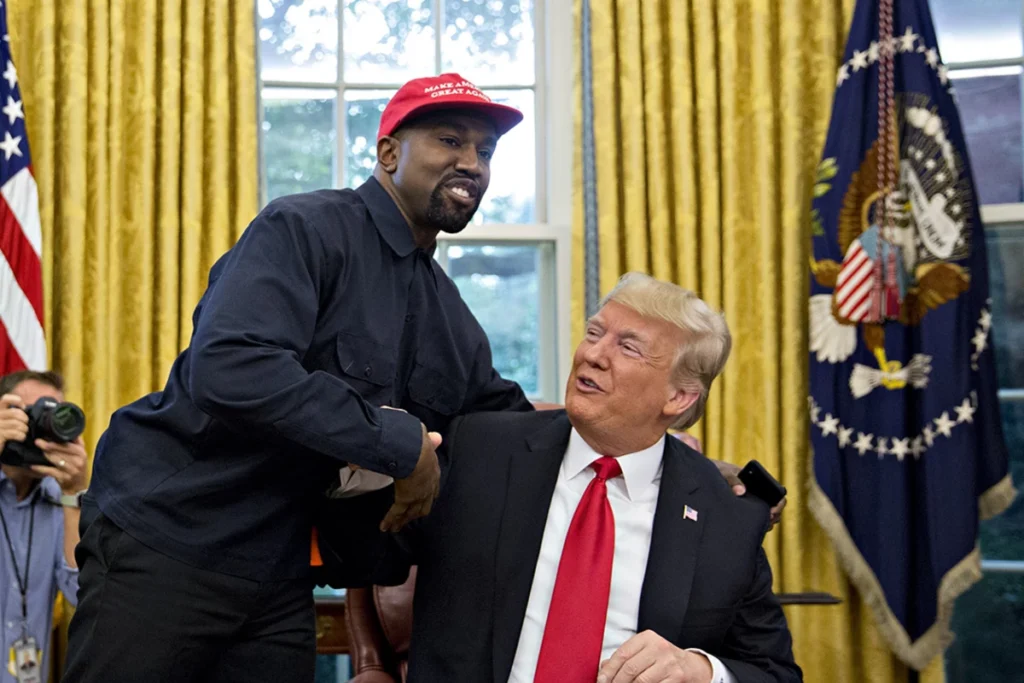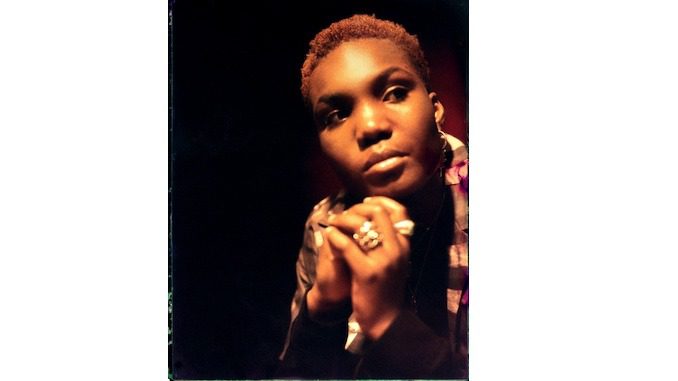There’s a new American labor movement afoot, and it’s about time. Fast food workers, Amazon employees, meat packers, shipyard workers, sanitation workers, bus drivers and low-wage workers in other industries are demanding financial relief and an improvement in working conditions due to the recent coronavirus outbreak. Some have walked out. Some have gone on strike. Whole Foods workers even called for a nationwide “sick-out.” After decades of increased corporate corruption, deregulation and reckless greed, a large chunk of the American workforce, particularly low-skill and blue collar workers, has now found itself on the brink. So global pandemic aside, things weren’t rosy before. While the cost of many lives will never be worth any societal and economic improvements we potentially make as a result of this crisis, it’s more than worthwhile to try and fix our systemic problems, which have become even more magnified. We’re unsure when it will be safe to hold mass demonstrations, but we can at least keep our eyes on the prize and make sure our outrage does not subside. In order to keep our consciousness blazing, we thought we’d share 15 incredible songs that embrace working class interests and radical left-wing politics. Dive into these gems from rebels like Jimmy Cliff, Billy Bragg, Judy Collins and more.
Billy Bragg: “There is Power in a Union”
An exclusion of Billy Bragg in a list like this would be nearly criminal. Bragg has more left-wing songwriting credentials than just about any musician today, and his 1986 track “There is Power in a Union” still holds up as the perfect labor theme song. The title is a reference to the song of the same name by famous labor activist Joe Hill, but Bragg rewrote the lyrics and set it to the tune of the Civil War era’s “Battle Cry of Freedom.” The overdubbed vocals make it sound like an entire group of strikers are joining in, and I get goosebumps just thinking about belting the song’s preeminent phrase, “the union forever” on the picket line back in the early 20th century.
Blue Scholars: “Proletariat Blues”
On their 2006 song “Proletariat Blues,” Seattle hip-hop duo Blue Scholars (DJ Sabzi and MC Geologic) echo one of Karl Marx’s central criticisms of capitalism—that it’s a system built on inequality. “It seems that we never get paid for what our labor is worth,” Geologic raps, and irrespective of the truth of his premise, it works especially well here because it’s not solely a soapbox song. He intersperses this line among others about working at a grocery store and as a telemarketer and sitting in the break room listening to Snoop and 2Pac.
The Clash: “The Magnificent Seven”
The Clash were one of very few artists to reach a mainstream audience while advocating for radical left-wing politics. Their music was so powerful that even conservatives (mostly classic rock dads) couldn’t resist listening to them. British Prime Minister and Tory party leader Boris Johnson recently named The Clash as one of his favorite bands of all time—heck, even former PM David Cameron loves The Smiths and New Jersey governor Chris Christie is obsessed with Bruce Springsteen. I’m not really sure how these conservative politicians are hearing the same songs—I mean, The Clash released an album called Sandinista! for god’s sake! One of the band’s best political anthems came via “The Magnificent Seven” from that very album. “Knuckle merchants and you bankers, too,” Joe Strummer sings, and he later paints a scene of Marx and Engels at a 7-Eleven.
The Coup: “5 Million Ways to Kill a CEO”
The Coup are one of hip-hop’s greatest groups—and definitely one of its best political-minded ones. Led by Boots Riley, rapper and the director of the recent 2018 film Sorry to Bother You, The Coup could practically write several volumes about the intricacies of exploitation and oppression that have wreaked havoc in America and abroad for generations. On their 2001 album Party Music (whose original album cover featured the World Trade Center up in smoke), they spew anarchist sentiments (“Get Up”) and even lambast Donald Trump before it was cool (“Ghetto Manifesto”). Boots Riley does not beat around the bush, especially on “5 Million Ways to Kill a CEO,” where even the Pope and Dalai Lama aren’t safe from anti-capitalist criticisms.
Gil Scott-Heron: “The Revolution Will Not Be Televised”
The phrase “the revolution will not be televised” was around for several years before Gil Scott-Heron used it in a poem for his most famous song, but he captures the phrase’s essence in such a holistic manner that even if someone was new to the term, they’d get a perfect—and funky—summation. Scott-Heron rails against consumerism, racism, war, sexism and black erasure from mainstream pop culture, dropping references to Johnny Cash, Beverly Hillbillies and Coca-Cola. The Black Power movement (which embraced the song’s title phrase) of the ’60s had far more at stake than the broader counterculture of hippies or the more radical politicos. Facing institutionalized racism in addition to classism meant that true liberation would be an even steeper mountain to climb, and it also meant any successful uprising that included black Americans certainly would never be broadcast via the big networks—as Noam Chomsky often hammers home, the rich and powerful fear the threat of a good example.
Florence Reece: “Which Side Are You On?”
Admittedly, this song is not super pleasant to listen to, and that’s because it was written and sung by a union organizer and non-musician Florence Reece, who recorded the song very late into her life. Reece’s husband was a union advocate, and her family’s home was pillaged by the anti-labor Kentucky sheriff’s department in 1931. In a fit of fury, Reece penned a simple song called “Which Side Are You On?” which featured lines like “You’ll either be a union man or a thug for J. H. Blair.” Little did she know, the song would become a labor anthem that was later covered by greats like Pete Seeger, Billy Bragg, Ani DiFranco, Talib Kweli and more.
Freddie McGregor: “To Be Poor is a Crime”
You know we live in a brutal world when poverty is literally criminalized. In America, for example, the criminal justice system is built on archaic, ruthless laws like cash bail, which allows poor people to sit in jail, purely because they can’t afford to post bail, and to fall victim to predatory bond lenders. Though Freddie McGregor doesn’t go into the specifics of how poverty is weaponized against the vulnerable, the underlying sentiment still comes across in his 2009 song “To Be Poor is a Crime.” Like many reggae singers, McGregor has been singing since he was a child, and he’s released dozens of albums. His wisdom and resilience can be heard in the sunny timbres of his voice on this rather uplifting song.
Immortal Technique: “The Poverty of Philosophy”
Even if you’ve gone through the American educational system and spent years consuming mainstream media, there’s a good chance that the evil of American imperialism in Latin America has never entered your consciousness—and that’s not a fault of your own, it’s a deliberate omission. Peruvian-American hip-hop artist Immortal Technique attacks this issue in his 2001 track “The Poverty of Philosophy,” and it’s a good starting point for the topic—at least as far as songs go. Whether in the mainstream or on the fringes, lyrics like these are a game-changer, and they risk quite a bit. Railing against the world’s most powerful and oppressive interests is especially satisfying when Felipe Andres Coronel lays it out in such straightforward terms: “Most of Latinos are here because of the great inflation that was caused by American companies in Latin America / Aside from that, many are seeking a life away from the puppet democracies that were funded by the United States.”
Jimmy Cliff: “Children’s Bread”
Jimmy Cliff was instrumental in popularizing reggae music outside of Jamaica thanks to his starring role in the 1973 film The Harder They Come. Cliff was born in 1948 and ever since he was 14 years old, he’s been releasing beloved reggae and ska music. He wrote countless spiritual songs about perseverance and socially conscious tunes about war and class struggles (Bob Dylan once declared Cliff’s “Vietnam” the greatest protest song ever), and Cliff continued with these themes on his most recent album, 2012’s Rebirth. Alongside a particularly moving cover of The Clash’s 1979 track “The Guns of Brixton” (which referenced The Harder They Come), the album contained a song called “Children’s Bread,” which sounds like it came from his ’70s heyday and references both his rough Jamaican upbringing (“They took the children’s bread / And give it to the dogs”) and the bubbling working class frustrations of modern-day America (“Now there’s a gathering on Main Street / Shuffling on Wall Street / To a new drum beat / Turning up the heat, now”).
Judy Collins: “Bread and Roses”
American suffragette Helen Todd gave a speech containing the symbolic imagery of bread and roses, and soon after, it inspired a poem by James Oppenheim, which was published in The American Magazine back in 1911 at the height of the American workers rights movement. Bread, of course, has been a symbol of life and sustenance basically since its existence, and roses have come to represent social democracy and socialism since at least the 19th century. Fast forward quite a while to 1976 when folk singer Judy Collins set that Oppenheim poem to music on her album of the same name. “Our lives shall not be sweated / From birth until life closes / Hearts starve as well as bodies / Give us bread, but give us roses,” Collins sings angelically.
Pete Seeger: “Solidarity Forever”
There’s hardly a more universally-known and influential left-wing anthem than “Solidarity Forever.” There are countless renditions and translations throughout history, but Pete Seeger’s version might take the cake among English-speaking musicians. The song was originally written by labor activist Ralph Chaplin who became the editor of an Industrial Workers of the World newspaper called Solidarity, but the song was hardly stuck in the 20th century. It’s been sung in labor demonstrations around the world since then, and the phrase was even used as recently as this year in campaign literature for the presidential run of Senator Bernie Sanders.
Stereolab: “Ping Pong”
Stereolab aren’t your average political band. They don’t aggressively scream about police states like some hardcore punk band or channel the pacifist mysticism of a psych-rock group. Stereolab singer and founder Laetitia Sadier decided to do something far more interesting: to write jazzy, krautrock pop songs laced with radical left-wing politics. “Ping Pong” is their most explicitly political song, and I’m not sure there’s another loungey indie-pop tune with anywhere near this much political philosophy—or at least not one this blissful. Here, Sadier sings about capitalism’s innate tendency to become too greedy for its own good, resulting in a never-ending cycle of boom, collapse and recovery.
The Style Council: “The Whole Point of No Return”
It’s pretty insane that between Paul Weller’s two most famous bands—The Jam and The Style Council—it was his pop-soul group The Style Council that spawned his most anti-capitalist tune rather than his raucous, skinny tie punk band. The ever-smooth, leisurely Cafe Bleu album track “The Whole Point of No Return” uses communist rhetoric about the ruling class, worker exploitation and property ownership, and it makes The Jam’s skewering of rich Eton College students (“Eton Rifles”) or their blatant anti-war number (“Little Boy Soldiers”) sound like weak sauce.
Tracy Chapman: “Talkin’ Bout a Revolution”
You might still see The Beatles as a symbol of peace and love, but when they were going on about a revolution in 1968 on their song “Revolution 1,” Lennon mocked the idea of a radical upheaval of the system. Tracy Chapman, on the other hand, wasn’t so subservient. “Poor people gonna rise up / And get their share / Poor people gonna rise up / And take what’s theirs,” Chapman sang on “Talkin’ Bout a Revolution” from her classic 1988 self-titled debut. She sings about the bread crumbs afforded to working class people via welfare, and the song clearly still strikes a chord with people—it found radio success in Tunisia during the country’s 2011 revolution, and it was played frequently at Bernie Sanders rallies in 2016.
Woody Guthrie: “1913 Massacre”
Woody Guthrie wasn’t just Bob Dylan’s idol or the guy with the guitar that read “this machine kills fascists.” Guthrie was a titan of American folk and protest music, and he never minced words when writing about those who wield power and those who have none. On “1913 Massacre,” Guthrie told the story of striking miners and their families who were killed in Michigan during the Italian Hall disaster. Copper miners and their families held a large Christmas party in a crowded hall, and at one point, someone yelled “fire,” setting off a stampede that killed dozens of people. Though the culprit was never officially confirmed, many of the miners believed it was a union buster, and Guthrie definitely took that stance, calling the opposition “thugs” and “scabs” who “laughed at their murderous joke” and standing up for the miners who risked their lives to make “less than a dollar a day.”
Lizzie Manno is an associate music editor, Coldplay apologist, bread obsessive and lover of all things indie, punk and shoegaze at Paste. Follow her on Twitter @LizzieManno




